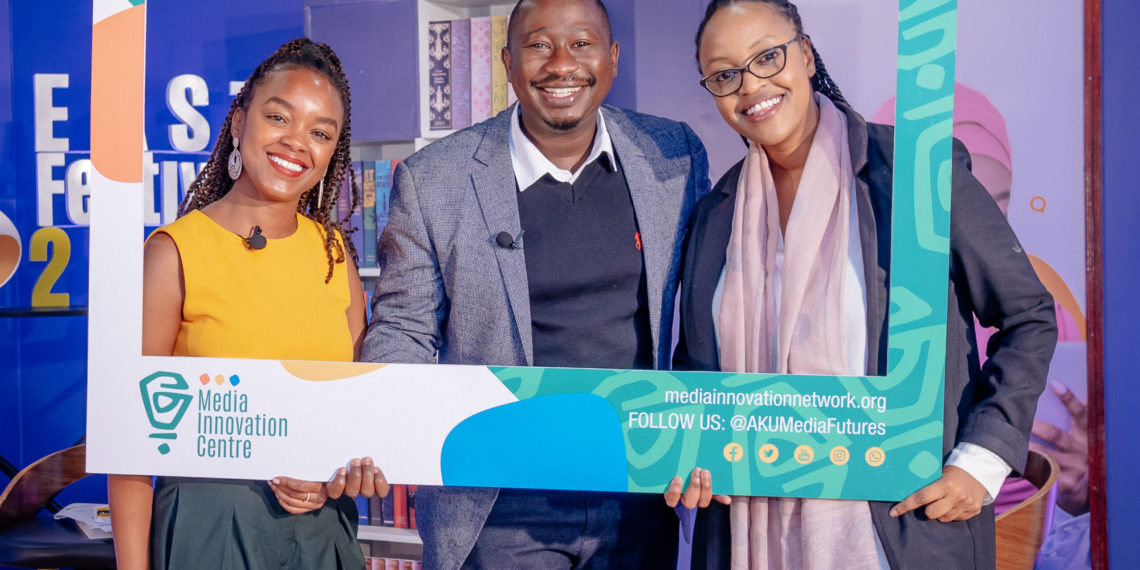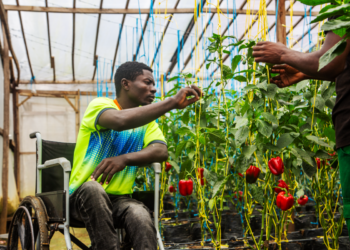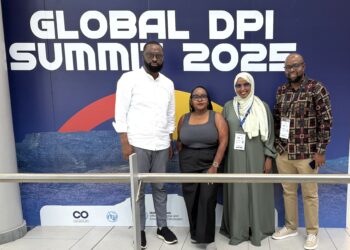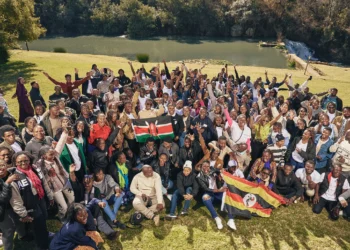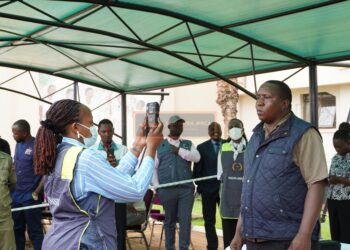When Tracy Kansiime attended the inaugural East African Storytelling (EAST) Festival from October 13 – 16, 2021, she was a journalism trainee participating in a half-year fellowship at the Media Challenge Initiative (MCI). The three-day festival opened a window through which Kansiime could interact with the works of media innovators from Kenya, Uganda and Tanzania. She saw how they were using various new media technologies to share information with their respective audiences, and she left the festival burning with inspiration.
“Most of the festival was virtual because of the Covid-19 pandemic, but I remember seeing that many people had developed different innovations and were anchoring them on storytelling. For me, that was powerful,” she said.
Soon after her lightbulb moment at the EAST Festival a year ago, Kansiime teamed up with four other like-minded MCI fellows to try to walk in the footsteps of those who had inspired them. Indeed, within a month, the quintet had set up their own media start-up called NaLaw Foundation, a multimedia initiative that seeks to provide information on legal matters to young people.
“NaLaw was born to solve one issue: the limited awareness about legal issues. If you look at the mainstream media and their coverage of the law, it is minimal outside of the big or extreme cases. Even the way they cover the law is still complex for an ordinary person with limited education; it is not broken down and simplified, and it is not engaging or interesting. So, we work with legal practitioners to explain these issues,” she explained.
So far, NaLaw has set up a YouTube channel through which it broadcasts explainers on legal matters, is working on developing a website that Kansiime says should be up and running before the end of 2022, and plans to venture into podcasts.
“It’s interesting that we are yet to make one year, but there’s already a lot happening. We’ve really moved,” said Kansiime, who is NaLaw’s strategist and communications manager.
Media innovators keen for a similar dose of inspiration as the one that got Kansiime and the group going will get their chance at the second East African Storytelling Festival, which is set to take place from November 9 – 11, 2022. Organised under the theme “Local change, global impact: Building informed and thriving communities through journalism,” this year’s festival is organised as a free hybrid event. The physical version, which offers limited attendance slots, will take place at the MCI Media Hub in Kampala, while the virtual edition is open to all.
According to Abaas Mpindi, the founder and chief executive officer of the Media Challenge Initiative, which is hosting this year’s event, some of the activities that they have planned include workshops, panel discussions, fireside chats, workshops, skill sessions and performances. Those activities will be anchored around an exhibition of some of the most innovative products from an innovators-in-residence initiative, run jointly by the Aga Khan University’s Media Innovation Network, MCI and DW Academy through their East African Media Futures programme.
“The EAST Festival 2022 aims to ask how journalism in East Africa can sustain productive public conversations, nurture responsible civic responsibilities and, most importantly, help the citizenry address challenges they face and seize the opportunities they have,” says the Media Innovation Network in its preview of the event. “The festival will celebrate redefined roles of journalism in the region, interrogate media structures and routines in the wake of the complex and disrupted media ecology and explore the emergent storytelling that innovatively involves communities.”
Mpindi says some of the projects that will showcase their work at the festival include Minority Africa, Ona Stories, Lam Sisterhood (from cohort 2 of the innovators-in-residence programme), and The Citizen Report, a fact-checking innovation called the Debunk Media Show, a sign language innovation called Signs TV, the African Institute for Investigative Journalism (from cohort 3). Also primed to showcase their work is Solutions Now Africa, an MCI initiative branded as Africa’s first solutions journalism newsroom.
“Some of the speakers are coming from those innovations, so it is an opportunity to hear the voices of those innovators beyond the work they will be showcasing,” explained Mpindi. “We will give them [the opportunity] at the festival for people to see the work they do and what it means to do the kind of stories they do and how to build audiences for their work.”
The senior consultant for Media Development in Africa at DW Academy, Steffen Leidel, said that the festival is part of their effort to strengthen media viability in the East African region through the creation of ecosystems for media innovation that bring together experts from diverse backgrounds.
“We said, ‘can we create a kind of platform where we bring together all the expertise in the East African region?’ because we think we need this kind of international dialogue on topics? Each country is different, but the challenges of journalism are very similar, and it makes a lot of sense to bring together creative people to think about how to face all the challenges that journalism is going through at the moment and for this, of course, innovation is one of the means to find solutions to the complex problems,” he explained.
Both Mpindi and Leidel are hopeful that the festival will bring to the fore new ideas on how to tell nuanced stories on multifaceted issues such as climate change, geopolitics, gender, and disinformation in the social media age to local communities.
“These issues are so complex that the question must be, ‘is our journalism good enough to cover this kind of new complexity?’ Leidel asked. “I think this is a good point for discussion because, ‘what do we need to cover the climate crisis [for example] today, do we need to have new skills, do we need to organise a newsroom in a [certain] way to be able to cover these complex issues?’ So, we have all these kinds of interesting, controversial questions around journalism that we are going to [address] in the festival.”
Leidel believes there is a more than sufficient pool of media innovators within East Africa for the region to address its journalism-related challenges, especially because media innovators in the region are much more aware of the local contexts that drive the usage of media products and consumption of news and information.
“The most important topic to think about really is, ‘what does good journalism mean for the community? How can we create meaningful stories for communities? And of course, technology can be a way, but you always have to prove what is possible,” he said.
Among the exhibitors will be potential funders, and participants will be free to market their ideas to them. However, both Mpindi and Leidel believe the most important results will come from the kind of idea development and incubation process that Kansiime and the group, and other media innovators, benefited from at the inaugural festival.
“What we want to do is to bring together the innovators – and, of course, donors – at the festival so that they can all do networking together and create new relationships. So, it is a good opportunity to meet and greet, think about new ideas and, of course, pitch ideas. If you have ideas, you can use all the discussions we will have to bring up your ideas and maybe, some big opportunities will come up.”
Mpindi, who has seen up-close seen how Kansiime and the group seized their lightbulb moment from the 2021 EAST festival and developed from scratch a media non-profit that is taking shape, agrees with Leidel.
“Innovation is very contagious,” he said. “There are very many people with ideas, but they sit on them. So, just being able to meet other innovators to ask them about their journey can inspire someone to start.”
Want to stay up to date with the latest journalism and media innovation news from the African continent? Subscribe to our newsletter.
This article was originally published by Jamlab Africa.


